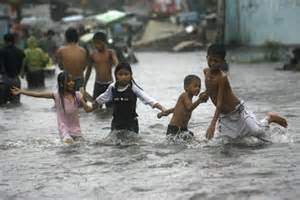#076 - Children & Disasters

References:
For more details and resources see:
Responding to the Needs of Children and Families Following Disaster
Kilmer, R.P., & Gil-Rivas, V. (2010). Responding to the needs of children and families after a disaster: Linkages between unmet needs and caregiver functioning. American Journal of Orthopsychiatry, 80, 135-142.
Kilmer, R.P., Gil-Rivas, V., Tedeschi, R.G., & Calhoun, L.G. (Eds.). (2010). Helping families and communities recover from disaster: Lessons learned from Hurricane Katrina and its aftermath. Washington, D.C.: American Psychological Association.
Based on Research by the American Psychology Association, adapted by Juanita N. Baker, Ph.D..
How much are children impacted by major disasters? Hurricane Katrina in August 2005 caused horrendous loss of life, displacement, property destruction, and financial devastation to Gulf Coast residents. How long do children and their parents need support?
Drs. Howard and Joy Osofsky and colleagues assessed over 7,000 children and adolescents from heavily affected Louisiana parishes. They investigated factors that might impact children’s effectiveness in handling trauma. Half of the children surveyed in the 2005–06 school year had post-traumatic stress and depression symptoms severe enough to meet the cut-off for referral to mental health services. The following year, the number was still high, with 41 percent meeting the criteria. Four years out, the number of children with trauma problems was declining, but still higher than average.
A loved one’s death led to the most serious emotional problems in children, followed by exposure to physical adversity, such as the destruction of homes and schools or the loss of possessions or pets. Living in poverty and having parents with mental health problems also increased a child’s risk.
Let’s not underestimate the time children need to recover from disasters. It may take years; family and community supports must be available for extended time periods. Let’s work together to help children through their trauma.

 Give to Florida Tech
Give to Florida Tech 